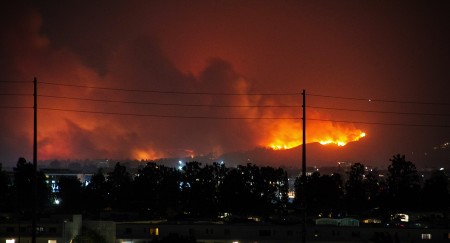We ask you, urgently: don’t scroll past this
Dear readers, Catholic Online was de-platformed by Shopify for our pro-life beliefs. They shut down our Catholic Online, Catholic Online School, Prayer Candles, and Catholic Online Learning Resources—essential faith tools serving over 1.4 million students and millions of families worldwide. Our founders, now in their 70's, just gave their entire life savings to protect this mission. But fewer than 2% of readers donate. If everyone gave just $5, the cost of a coffee, we could rebuild stronger and keep Catholic education free for all. Stand with us in faith. Thank you.Help Now >
New Forms of Slavery: Sexual Trafficking
FREE Catholic Classes
The sex trafficking industry involves the systematic rape, torture, enslavement and murder of millions
Highlights
Zenit News Agency (www.zenit.org)
7/1/2009 (1 decade ago)
Published in Europe
ROME (Zenit) - The Vatican and groups of women religious have long been actively working to stop the trafficking of persons, and a recent message of support sent by Benedict XVI to a meeting on the issue held in Rome this month reiterated that this is a Church priority.
The Pontiff said it is important to bring about "a renewed awareness of the inestimable value of life and an ever more courageous commitment to the defense of human rights and the overcoming of every type of abuse."
The issue is also being debated in England. A June briefing published by the Christian Institute explained that the government's Policing and Crime Bill includes significant changes to the law regarding prostitution in England and Wales. The changes are designed to deal particularly with the problem of sex trafficking.
The proposals, still to be voted on by Parliament, contemplate that a purchaser of sexual services would be committing an offence if sex was purchased from a prostitute who had been subjected to force, deception or threats, according to the briefing.
The concept of force would include coercion by psychological means, including exploiting someone's vulnerability. The Christian Institute said that this would be a strict liability offence, meaning that the buyer could be guilty regardless of whether they knew the prostitute was subjected to force or whether they made attempts to find out.
The institute noted that it is impossible to know exactly how many prostitutes are working in the United Kingdom; however, many have put the figure at around 80,000. Among the estimates, one from 2008 suggested that up to 18,000 females, including girls as young as 14, have been trafficked into U.K. brothels.
Global problem
On June 16 the United States State Department published its annual "Trafficking in Persons Report" for 2009. It said that sex trafficking comprises a significant portion of overall human trafficking.
There are a variety of ways in which women are forced into the sex trade, the report noted. It can come about through coercion, deception, or debt bondage. Quite often women and girls are forced to continue in prostitution through the use of a supposed "debt," purportedly incurred through their transportation to a Western country.
The report cited data from UNICEF, according to which as many as two million children are subjected to prostitution in the global commercial sex trade.
The State Department observed that sex trafficking has devastating consequences for minors, including long-lasting physical and psychological trauma and disease. Infections by sexual diseases, drug addiction, and social ostracism are also common.
Heinous crime
A recent book, published earlier this year, examined the subject of trafficking from an economic point of view. The book is "Sex Trafficking: Inside the Business of Modern Slavery" (Columbia University Press), by Siddharth Kara.
Kara was an investment banker before putting aside his corporate career to become involved in efforts to abolish human slavery.
While dispassionate in his economic analysis of the people trade, Kara is clear in his ethical judgment on the issue: "Sex trafficking is a heinous crime against humanity," he declared at the start of his book.
Kara described how the acquisition of sex slaves comes about through a variety of ways. Some are deceived by false promises, others are sold by their parents. Seduction is another method, and some are recruited by former slaves.
In some countries, false marriage offers are a common way to lure young females who look for a way to gain legal rights and social acceptance. Traffickers also take advantage of the multitudes who are confined in refugee camps, to whom any offer of escape provides an attractive alternative.
Kara provided testimonies, often graphic, of how the process of converting women into sexual slaves involved methods such as rape, torture, humiliation and the use of drugs. The intention is to make the women completely submissive, and therefore attractive to potential buyers.
The sex trafficking industry, Kara concludes, involves the systematic rape, torture, enslavement, and murder of millions of women and children, whether it be through homicide, sexually transmitted diseases or drugs.
Economic analysis
Kara calculated that the total annual number of individuals trafficked for commercial sexual exploitation is between 500,000-600,000. The exact numbers, he admits, are difficult to establish. The U.S. State Department estimates the overall number of internationally trafficked persons is between 600,000-800,000. This number doesn't include the millions who are trafficked internally.
Regarding the profits made from the overall form of human slavery, not only sexual, Kara cites the U.S. State Department figure of $9.5 billion per year. The International Labor Organization estimates it to be closer to $31.7 billion.
Kara breaks down some of the statistics, and he calculated that in 2007 the sale of trafficked sex slaves to brothel owners and pimps generated revenues of around $1 billion, which represents approximately $1,895 per slave. After costs, these sales generated approximately $600 million in profits, he calculated.
On a global basis he estimated that in 2007, the total revenue generated by all forms of human trafficking reached no less than $152 billion, with profits of $91 billion. The most profitable form of trafficking was that related to the sex industry. While they accounted for only 4.2% of the world's slaves, they generated 39% of slaveholder's profits, according to Kara.
The profits to be made from such an activity has attracted criminal groups from the local level to international syndicates, he explained. The international mafias operating in Africa, Asia, and Eastern Europe cooperate with the local national criminal organizations to lease territories for the exploitation of victims.
How can we explain such a trade in human lives, Kara asks. On the supply side we can look at factors that range from poverty, lawlessness, military conflict and economic breakdown. As well, the post-1989 transitions and the extension of global integration also played a part in facilitating the trade in human persons.
On the demand side, Kara pointed out that the majority of males do not condone the vulgarities associated with the sex trade. But the lowering of prices for commercial sex due to a greater supply has increased revenues: "Sex slavery is the profit-maximizing version of prostitution," he argued.
Neighbors
The Second Vatican Council document "Gaudium et Spes" mentioned the problem of human trafficking. The council fathers invoked our obligation to be the neighbor of every person and urge all to help those who are abandoned or suffering.
Abuses such as those of human slavery and prostitution were described as a violation of the human person. Treating humans as "mere tools for profit, rather than as free and responsible persons," is an infamy, they declared, and it poisons human society (No. 28).
More recently, Archbishop Agostino Marchetto, secretary of the Pontifical Council for the Pastoral Care of Migrants and Travelers, spoke at a forum held in Vienna in February 2008 on the theme of human trafficking.
Easy solutions do not exist, he admitted. Dealing with these abuses of human rights requires an approach that not only takes into account the best interests of the victim, but also the just punishment of those who benefit from it.
He also recommended the introduction of preventive measures such as raising public awareness of the problem. As well, it is necessary to deal with the root causes of the phenomenon, including the economic factors involved, he concluded. Not easy matters, indeed, but the right answers could positively affect millions of lives that are currently hanging in the balance.
Join the Movement
When you sign up below, you don't just join an email list - you're joining an entire movement for Free world class Catholic education.

-

-
Mysteries of the Rosary
-
St. Faustina Kowalska
-
Litany of the Blessed Virgin Mary
-
Saint of the Day for Wednesday, Oct 4th, 2023
-
Popular Saints
-
St. Francis of Assisi
-
Bible
-
Female / Women Saints
-
7 Morning Prayers you need to get your day started with God
-
Litany of the Blessed Virgin Mary
Vatican City Leads the Way in Ethical Artificial Intelligence Regulation
-

Rising from the Ashes: Southern California's Wildfire Tragedy Sparks Resilience and Hope in the ...
-

Catholic Medical Group Challenges Biden Administration Over Emergency Room Abortion Mandate
-
FDA Proposes New Front-Facing Nutrition Labels to Promote Healthier Choices
-
Introducing 'Journey with the Messiah' - A Revolutionary Way to Experience the Bible
Daily Catholic
 Daily Readings for Thursday, January 16, 2025
Daily Readings for Thursday, January 16, 2025 St. Fursey: Saint of the Day for Thursday, January 16, 2025
St. Fursey: Saint of the Day for Thursday, January 16, 2025 Prayer for a Blessing on the New Year: Prayer of the Day for Tuesday, December 31, 2024
Prayer for a Blessing on the New Year: Prayer of the Day for Tuesday, December 31, 2024- Daily Readings for Wednesday, January 15, 2025
- St. Paul the Hermit: Saint of the Day for Wednesday, January 15, 2025
- St. Theresa of the Child Jesus: Prayer of the Day for Monday, December 30, 2024
![]()
Copyright 2024 Catholic Online. All materials contained on this site, whether written, audible or visual are the exclusive property of Catholic Online and are protected under U.S. and International copyright laws, © Copyright 2024 Catholic Online. Any unauthorized use, without prior written consent of Catholic Online is strictly forbidden and prohibited.
Catholic Online is a Project of Your Catholic Voice Foundation, a Not-for-Profit Corporation. Your Catholic Voice Foundation has been granted a recognition of tax exemption under Section 501(c)(3) of the Internal Revenue Code. Federal Tax Identification Number: 81-0596847. Your gift is tax-deductible as allowed by law.







 Daily Readings for Thursday, January 16, 2025
Daily Readings for Thursday, January 16, 2025 St. Fursey: Saint of the Day for Thursday, January 16, 2025
St. Fursey: Saint of the Day for Thursday, January 16, 2025 Prayer for a Blessing on the New Year: Prayer of the Day for Tuesday, December 31, 2024
Prayer for a Blessing on the New Year: Prayer of the Day for Tuesday, December 31, 2024


